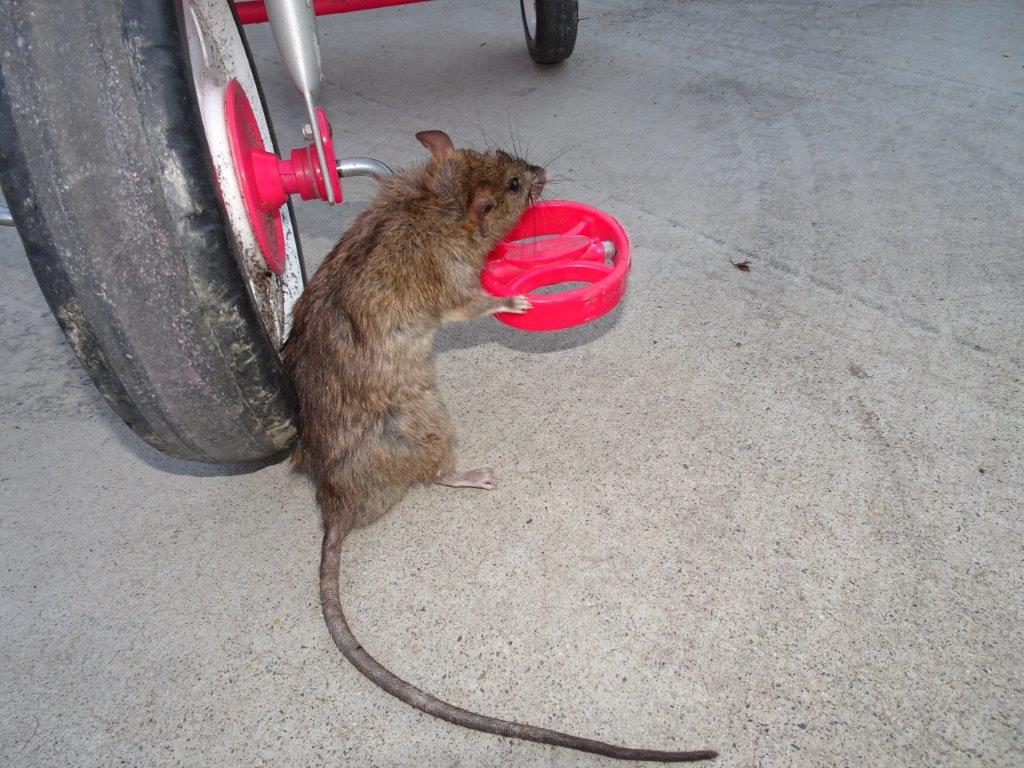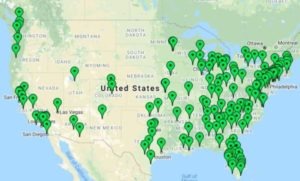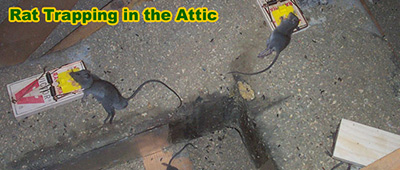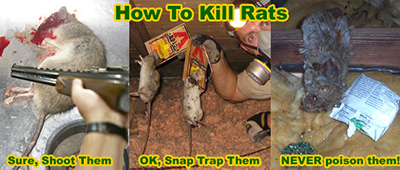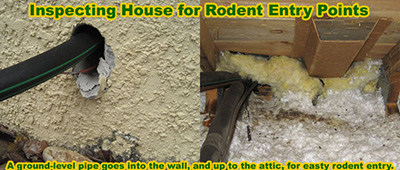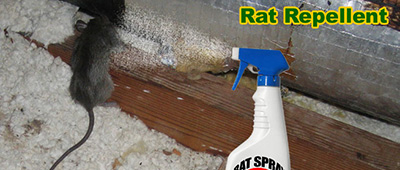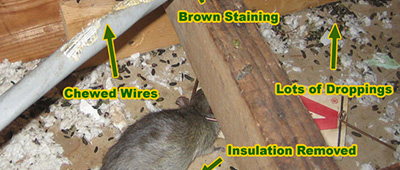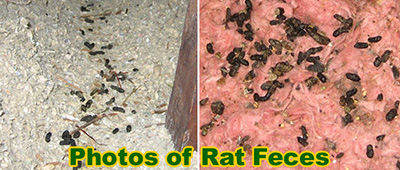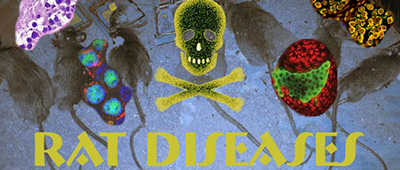Short answer to effective poisoning - don't do it. I know that many people use poison, including your smiling, trusted pest control technician in a white shirt and cap. I know it's a big
industry, with a lot of research behind it, and that your Dear Old Aunt Gertrude swears by poison. But I'm here to inform and educate, hopefully the most important thing I say on this
website, that poison just plain stinks - IT DOESN'T SOLVE YOUR RAT PROBLEM, and I'll explain why below.
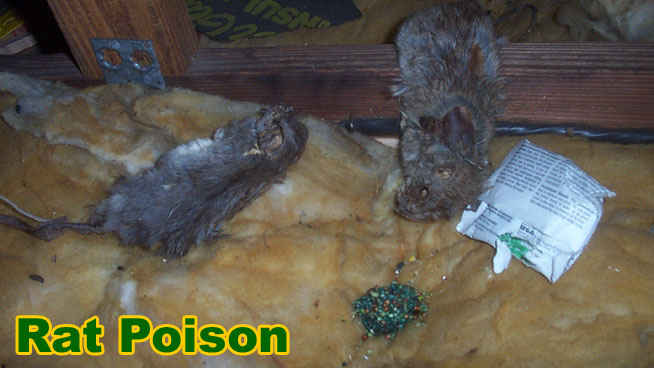
Yes, poison kills rats, as you can see in the above photo. It's just that it doesn't kill ALL the rats. In fact, only a small percentage. And the ones that do die, will die in your house a and cause a horrible odor. And then new rats will replace the dead rats very quickly.
ANALYSIS OF RAT POISON - WHY YOU SHOULD'NT USE IT
Thanks for reading my website. Here are several of the reasons why you don't want to poison rats:- It's not effective - Not all the rats will find the poison, not all the ones that find it will eat the poison (rats are amazingly cautious), and not all that eat it will die (many have become resistant, and they must eat a lethal dose).
- If you use tracking powder, reasoning that rats don't need to eat it, get ready for some legal problems, or worse. Yes, people die because of tracking powder, it's happened several times. And as usual, there's no way every rat is going to hit the powder, ironically, especially if it's used in "safe" closed containers.
- It's a temporary fix - even if the poison does kill rats, new rats will keep coming and coming. Heck, new ones will come to eat the dead rat carcasses. As long as there is ample space and nearby food, you'll have rats.
- It's inhumane - you may not like rats, you may want to kill them and that's fine. But poison is a slow and painful death. Why not use much more effective lethal snap traps?
- You'll wind up with rotting rat carcasses in your attic or walls. If a rat dies of poison, it's going to die in your house, where it spends most of its time. Some poison sellers spread an absolute hogwash myth about rats going outside to die near water. What a crock! Several times a week, I'm called out to remove dead rats from buildings, in insulation, walls, etc, because someone, often a pest control company, put out rat poison. A rotting rat will stink up the whole house - it smells horrible. Read here about:
- Dead Rat Removal
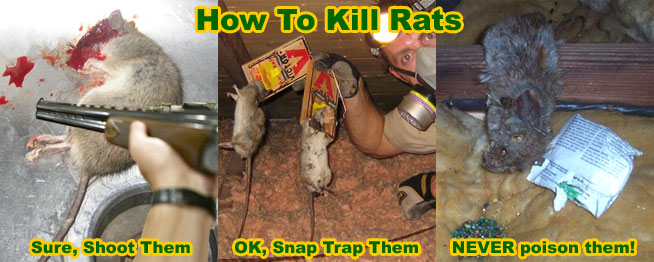
TYPES OF RAT POISON
Anticoagulants: Includes warfarin, brodifacoum, flocoumafen, coumatetraly, difenacoum, and bromadiolone. Anticoagulants damage capillaries (the tiny blood vessels), and cause internal bleeding (hemorrhaging).
This process takes a few days. Documented cases of human warfarin poisoning record severe pain from bleeding into muscles and joints. In the final phase, the animal dies of hypovolemic circulatory shock.
Bromethalin: Attacks the nervous system, and causes limb ataxia, extensor rigidity, opisthotonus, lateral recumbency hind limb hyper-reflexia, seizures, hyperthennia, and finally death after 36 hours or so.
Cholecalciferol: It produces hypercalcemia, which results in systemic calcification of soft tissue, leading to renal failure, cardiac abnormalities, hypertension, CNS depression, and leads to death in 24-36 hours.
Strychnine: causes muscular convulsions and eventually death through asphyxia or sheer exhaustion.
Antifreeze - Ethylene glycol: The liver metabolizes ethylene glycol into glycolate and oxalate, which cause cellular damage in various tissues and organs, especially the kidneys.
So after an initial stage of nausea and vomiting and muscle twitches, kidney, liver, even heart failure cause death, usually in about 24 hours.
So there you go, how to poison rats, and some tips and techniques. Now that you know, please don't do it. Follow my guide on my home page, and you'll have way better success, and far less problems. You can
find out how to keep rats away by sealing the house shut, rather than by resorting to lousy rodenticides.
THE SAME APPLIES TO MICE
Although I wrote this site with rats in mind, such as the Roof Rat and Norway Rat, the same principles apply to other rodents, such as the house mouse. Mice
behave very similarly to rats, they're just smaller. Email me if you have any questions about how to poison a mouse, types of mouse poison, how to poison mice, or any rodent poison questions.
You can read about Killing rats outside house or Are rats smart enough to figure out that the poison is dangerous to them?
